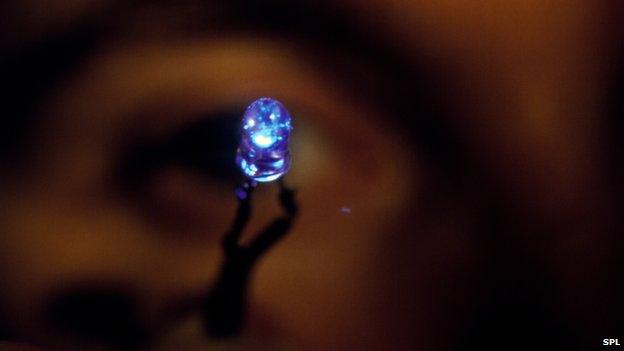
The 2014 Nobel Prize for physics has been awarded to a trio of scientists in Japan and the US for the invention of blue light emitting diodes (LEDs).
The 2014 Nobel Prize for physics has been awarded to a trio of scientists in Japan and the US for the invention of blue light emitting diodes (LEDs).
Professors Isamu Akasaki, Hiroshi Amano and Shuji Nakamura made the first blue LEDs in the early 1990s.
By combining blue light with existing red and green LEDs, this enabled a new generation of bright, energy-efficient white lamps.
The winners will share prize money of eight million kronor (£0.7m).
They were named at a press conference in Sweden, and join a prestigious list of 196 other Physics laureates recognised since 1901.
Prof Nakamura, who was woken up in Japan to receive the news, told the press conference, "It's unbelievable."
Making the announcement, the Nobel jury emphasised the usefulness of the invention, adding that the Nobel Prizes were established to recognise developments that delivered "the greatest benefit to mankind".
The committee chair, Prof Per Delsing, from Chalmers University of Technology in Gothenburg, emphasised the winners' dedication.
"What's fascinating is that a lot of big companies really tried to do this and they failed," he said. "But these guys persisted and they tried and tried again - and eventually they actually succeeded."
Professor Sir Colin Humphreys from the University of Cambridge commented: "This is a tremendous achievement and Akasaki, Amano and Nakamura are very worthy winners. Their invention of efficient blue LEDs has paved the way for the development of bright, cost effective and, importantly, energy efficient white lighting."
From BBC News

